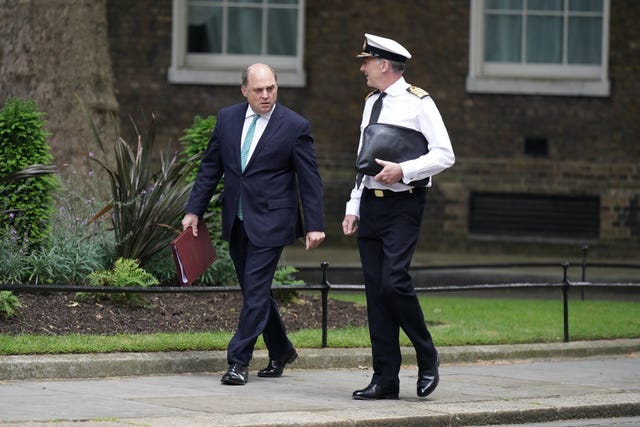
Boris Johnson faces a row over increased defence spending as he heads to a Nato summit likely to be dominated by the need to boost military resources to counter Russia.
The Government could be forced to abandon a commitment to increase the defence budget by 0.5% above inflation, a senior source acknowledged.
With inflation set to hit 11% this year and the public finances battered by the impact of the pandemic, the source admitted the pledge made in the 2019 election manifesto might be dropped.
Spoke with President @ZelenskyyUa on #Russia's war of aggression. At our #NATOSummit we will step up support for our close partner #Ukraine, now & for the longer term. #NATO Allies stand with you.
— Jens Stoltenberg (@jensstoltenberg) June 28, 2022
“The manifesto was written before £400 billion had to be spent locking people up for their own safety because of the global pandemic,” a senior Government source said.
“There is a reality check on things that were offered in a different age which is the only reasonable thing that we can expect.”
The source said “the intention is always to honour manifesto commitments but they were made before £400 billion was spent coping with a global pandemic that none could have possibly foreseen”.
Meanwhile, Defence Secretary Ben Wallace was reported to be pushing for a spending increase of around 20%.
The Government is committed to meeting the Nato target of spending 2% of gross domestic product – a measure of the size of the economy – on defence, with expenditure currently around 2.1%.
Mr Wallace made the call in a letter to Mr Johnson ahead of the Nato summit in Madrid, which begins with a formal dinner on Tuesday night.

A defence source did not deny the reports, saying: “We do not comment on alleged leaks.
“The Defence Secretary and the Prime Minister have always said that the Government will respond to any changes in threat which is why in 2020 the Ministry of Defence received a record defence settlement.”
The Government views the 2% figure as a “floor not a ceiling” but any further increase in defence spending would need to be balanced with the wider pressures on the public finances.
Ahead of the Nato summit, the alliance’s general secretary, Jens Stoltenberg, set out plans for a dramatic expansion in the number of personnel forming part of the high-readiness force from 40,000 to 300,000 in response to the threat posed by Russia.
The move would form part of a package that amounts to “the biggest overhaul of our collective deterrence and defence since the Cold War”, he said.
Increasing NATO’s Rapid Reaction Force from 40k to 300k is the right call.
But if the UK’s to play it’s part (as Europe’s security declines) we must finally:👉 increase defence spend to 3%👉 reverse troop number cuts👉 purchase all 138 F35’s👉 upgrade our land warfare assets https://t.co/uQUnORGYqA
— Tobias Ellwood MP (@Tobias_Ellwood) June 27, 2022
Tobias Ellwood, Tory chairman of the Commons Defence Committee, has argued that UK spending should increase to 3% of GDP and cuts in troop numbers should be reversed.
The Nato summit in Madrid follows the G7 gathering in Germany, where the diplomatic response to the war in Ukraine overshadowed other subjects.
The military and security response to the crisis in eastern Europe is expected to be at the forefront of the leaders’ minds in Madrid.


Comments: Our rules
We want our comments to be a lively and valuable part of our community - a place where readers can debate and engage with the most important local issues. The ability to comment on our stories is a privilege, not a right, however, and that privilege may be withdrawn if it is abused or misused.
Please report any comments that break our rules.
Read the rules here